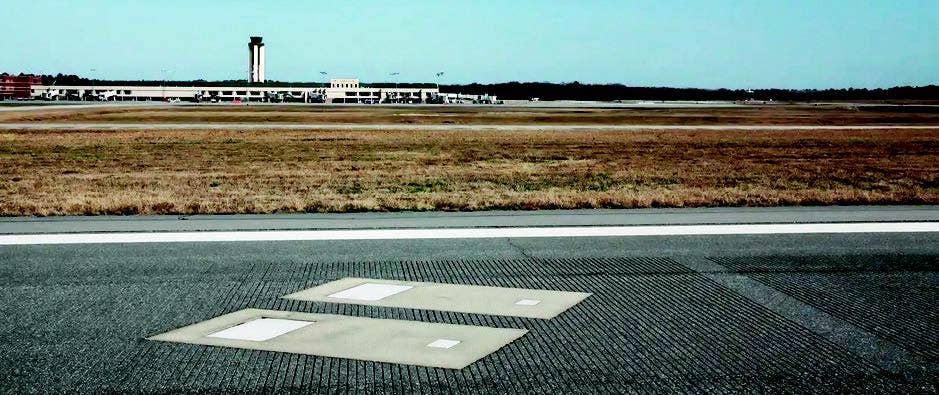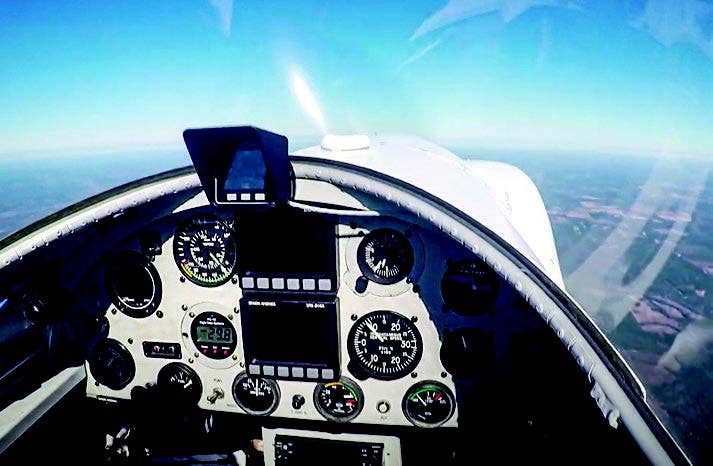Pilot Mental Health Remains the Last Taboo in Aviation
Horizon Air jumpseat incident could provide the impetus for the industry and FAA to address the growing pilot mental health issue.

FLYING contributor Sam Weigel hopes that the recent Horizon Air jumpseat incident provides the impetus and political cover required for industry and FAA leaders to make the sea change when it comes to pilot mental health that the system so badly needs. [iStock]
By the time this, the strange case of the Alaska Airlines jumpseating pilot who attempted to shut down the engines of a Horizon Air Embraer 175 midflight may have faded from the headlines, but I suspect the impact will last much longer.
Most certainly you still remember it—particularly for the salacious detail that said pilot had partaken in psychedelic mushrooms 40-some hours before his ill-timed psychotic episode. Already, “Had any ’shrooms lately, cap’n?” has supplanted the long-standing “Been drinking lately, cap’n?” as a moronic joke of choice among our more comedically impaired passengers. For much of our empathy-deficient, terminally online general public, a sad case of crumbling mental health that destroyed a family man’s life is little more than darkly humorous grist for the dank meme mills.
If you're not already a subscriber, what are you waiting for? Subscribe today to get the issue as soon as it is released in either Print or Digital formats.
Subscribe NowTo those of us who make our living as professional pilots, though, and to others in this industry for which safety is religion but discussions of mental health have remained frustratingly taboo, this felt like something much more serious, another foreshock to an earthquake that’s been decades in the making.
This event hit particularly close to home for me because the pilot in question and I crossed paths when we both flew for Horizon Air. The name didn’t ring a bell until Horizon friends sent me photos from back in the day: “Oh, that Joe!” Furthermore, I flew several times with the quick-acting captain who subdued the renegade jumpseater, and after leaving Horizon I ran into him on a layover. It’s a very small industry.
It’s rare that intentional pilot actions cause accidents or serious incidents like this one—but not unknown. The most infamous is 2015’s GermanWings 9525, which was an open-and-shut case of pilot murder-suicide. Most are not so clear. EgyptAir 990 and SilkAir 185 were ruled suicides by the National Transporation Safety Board (NTSB) but are still disputed by Egyptian and Indonesian authorities, respectively. It’s the leading theory for the 2014 disappearance of Malaysia 370 but is unlikely to be proven absent recovery of the wreckage and black boxes. The final report on 2022’s China Eastern 5735 crash has yet to be issued, but media sources report that investigators believe it resulted from intentional action by one of the pilots.
At a time when every other facet of airline flying has become astonishingly safe, these events have started to stick out. Just as Air France 447, Colgan 3407, and other loss-of-control accidents prompted aviation regulators to ask, “Are airline pilots forgetting how to fly?” now mental health events—including many that go unpublicized because they involve pilots on layover or at home—are prompting industry leaders to ask, “Are airline pilots mentally well enough to fly?” To which the more cynical among us respond smartly: “Sure we are— just ask us!”
Because that’s essentially the system that is in place. Every six or 12 months, we fill out FAA Form 8500-8 (Application for Airman Medical Certificate) and state whether we have ever in our lives been diagnosed with, had, or presently have any one of 23 potentially disqualifying conditions, notably including “mental disorders of any sort; depression, anxiety, etc.” It is well known that checking yes to this box will shunt your application into an opaque, byzantine process involving significant time and expense for evaluations and interminable delay by the FAA’s understaffed Aerospace Medical Certification Division (AAM-300), and that after a year or two in limbo, you may be brusquely informed that you are not fit to fly for pleasure or profit.
Additionally, you are required to list all visits to health professionals in the last three years, and listing anyone even nominally connected with the health of your noggin is most certain to invite additional questions.
If your healthcare was provided by the Department of Defense or Veterans Affairs, there’s no hiding anything. The FAA has access to your records. The rest of us are on the honor system. Most of us are truthful, particularly for physical defects (Crohn’s disease, in my case, for which there is a fairly easy, well-known special issuance process). The system, however, definitely incentivizes concealing mental issues. I have personally encountered three major airline pilots who openly told me they have diagnoses of anxiety or depression that they’ve kept hidden from the FAA and the airline. I’m sure I’ve flown with others who keep their cards closer to their chests.
But they are the exceptions. Most of us don’t hide mental conditions from the FAA because most of us have nothing to hide—and we make damned sure it stays that way by never getting within speaking distance of anyone qualified to make any sort of troublesome diagnosis. Mind you, pilots already tend to be the sort of folks who deny the possibility of any human weakness in their mettle, who tough it out and rub some dirt on it and grit their teeth while shoving the pain deep, deep down. When it comes to mental or emotional health, this innate reluctance to seek help is greatly reinforced by the professional consequences of doing so.
And so, for the vast majority of working pilots, mental healthcare simply does not exist. Since the COVID-19 pandemic, companies have invested in wellness resources for their employees, and my airline has been at the forefront. A while back, I flew with a new first officer who was feeling stressed over her personal finances and, seeing a blurb on our internal website for wellness coaching, thought, “Why not? It’d be nice to talk to someone about this.” That lasted for about two minutes before she was informed that, because of aeromedical-legal issues, the program was not available to pilots. Instead, we commiserate over layover beers—the only acceptable form of therapy available to us.
I’ve previously written about my experience moving off of Windbird and across the country to Seattle, sleeping in my own bed for three nights in a busy, 60-day period, and how I was in a rather dark place mentally. This raised some eyebrows, and I received several emails expressing concern—not over my mental health but regarding my honesty about it in print. The reality is that I was not suffering from depression, and I never have. But there have been periods in my life where financial, career, or life stress clouded my usual optimistic disposition, and friends and family noticed. The fact that it is considered taboo for a professional pilot to admit even this is disheartening.
We are apparently expected to be superheroes, or to at least play the part. What of those whose internal struggles greatly eclipse my own? Most suffer in silence, and every year we lose a few of these, the company email announcing their untimely passing with no reference to cause of death. A brave few seek professional help, either on the sly or at great risk to their career.
And then there are those who take the DIY approach. There is a significant body of recent clinical research to suggest that Psilocybin is effective in many individuals for treating anxiety and affective disorders. It’s now legal in several states and tolerated in others. Why wouldn’t a depressed person who has denied themselves professional treatment give magic mushrooms a try?
Alas, amateur dosing in a less-than-clinical setting will yield uneven results, and there may be unexpected side effects, notably including insomnia. I’m sure most of us believe we’d never attempt to gain access to an airline cockpit after several days without sleep—but few of us really know what we’d do in that state.
Industry leaders know there’s a problem. The FAA knows there’s a problem, having recently established a Mental Health and Aviation Medical Clearances Rulemaking Committee, which will be advisory but is expected to recommend major changes. There have been some small tweaks already, such as expedited approval of those with a childhood diagnosis of ADHD but no recent history.
But our industry and regulators have a great deal of institutional momentum and a fair amount of outdated thinking about mental health to overcome. It is my sincere hope that the recent Horizon Air incident provides the impetus and political cover required for our leaders to make the sea change that our system so very badly needs.
This column first appeared in the January-February 2024/Issue 945 of FLYING’s print edition.

Subscribe to Our Newsletter
Get the latest FLYING stories delivered directly to your inbox







